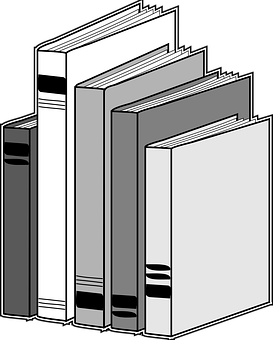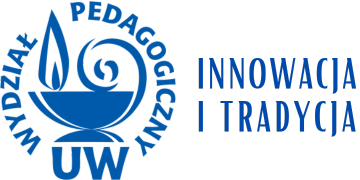Dr Monika Skura
Członkini Rady Dyscypliny
Przed spotkaniem proszę o maila/Before the meeting, please write an email.
23-27.09.25
20-25.10.25
03.11.25-19.12.25 (staż naukowy)
Zainteresowania naukowe:
PL Zainteresowania naukowe i dydaktyczne koncentruję wokół pedagogiki specjalnej oraz pedagogiki inkluzyjnej, ze szczególnym uwzględnieniem edukacji uczniów ze specjalnymi potrzebami edukacyjnymi (SPE). Interesują mnie również innowacje w edukacji włączającej, koncepcje kształcenia przyszłych pedagogów specjalnych i nauczycieli współorganizujących kształcenie (nauczycieli wspomagających), a także praktyczne narzędzia wspierające funkcjonowanie uczniów ze SPE w zróżnicowanej rozwojowo klasie szkolnej.
W swojej pracy badawczej i dydaktycznej zajmuję się m.in.:
- profesjonalnym rozwojem nauczycieli pracujących z uczniami ze SPE,
- teorią i praktyką edukacji włączającej oraz zróżnicowanym nauczaniem,
- organizacją procesu kształcenia i wychowania uczniów z niepełnosprawnościami i trudnościami rozwojowymi,
- strategiami wsparcia uczniów z trudnościami w uczeniu się, komunikacji i zachowaniu, włączając współpracę z rodzinami i opiekunami w celu wspólnego wspierania rozwoju dziecka,
- zarządzaniem trudnymi zachowaniami w środowisku szkolnym,
- tworzeniem środowiska szkolnego opartego na pozytywnym wsparciu behawioralnym (PBIS), promującego dostępność, aktywne uczestnictwo uczniów i równe szanse edukacyjne.
ANG My research and teaching interests focus on special education and inclusive education, with particular emphasis on the education of students with special educational needs (SEN). I am also interested in innovative approaches to inclusive education, concepts for training future special education teachers and support teachers, as well as practical tools that support the functioning of students with SEN in developmentally diverse classrooms.
In my academic and professional work, I focus on, among others:
- the professional development of teachers working with students with SEN,
- the theory and practice of inclusive education and differentiated instruction,
- the organization of teaching and educational support for students with disabilities and developmental difficulties,
- strategies for supporting students with learning, communication, and behavioral challenges, including collaboration with families and caregivers to jointly promote the child’s development,
- managing challenging behaviors in educational settings,
- developing school environments based on Positive Behavioral Interventions and Supports (PBIS), fostering accessibility, student engagement, and equitable opportunities for all learners.

Wybrane publikacje:
- Monika Skura (2025), Praca nauczyciela w dynamicznym systemie edukacyjnym: między autonomią a kontrolą, między wyzwaniami a relacjami, Kultura i Edukacja , 3(149), 35–52, DOI: 10.15804/kie;
- Monika Skura (2025), Czy pedagog specjalny ma swoje miejsce w zespołach wsparcia uczniów, nauczycieli i rodziców w szkole ogólnodostępnej? Doświadczenia i opinie specjalistów szkolnych. Człowiek – Niepełnosprawność – Społeczeństwo, 68(2), 69–86. DOI: 10.71358/cns.2277;
- Monika Skura (2025), Od reaktywności do prewencji: systemowe wsparcie zachowań uczniów w modelu PBIS jako odpowiedź na współczesne wyzwania wychowawcze. Niepełnosprawność. Dyskursy pedagogiki specjalnej, 54. DOI:10.26881/ndps.2025.54.12;
- Monika Skura, Grażyna Dryżałowska, Anna Steinhagen & Weronika Lorens-Rosa (2025), Exploring Mental Health, Self-Compassion, and Support in New Parents of Children with Disabilities vs. Non-Disabled Children, Child: Care, Health and Development, DOI: 10.1111/cch.70150;
- Monika Skura, Gosia Klatt & Joanna Dobkowska (2024), Pedagogy as a political action – discussing controversial topics in Polish schools, Teachers and Teaching: theory and practice, 1–24. DOI:10.1080/13540602.2024.2447794;
- Monika Skura & Urszula Markowska-Manista (2024), Working with students from diverse cultural backgrounds: experiences of Polish teachers from various types of schools, Studia z Teorii Wychowania, TOM XV, nr 2(47), p. 129-147. DOI:10.5604/01.3001.0054.6583;
- Monika Skura (2024), Investigating Emotional Intelligence, Social Competencies, and Teacher Professional Experience in Addressing the Needs of Students with Special Educational Needs (SEN) Across Various Educational Settings in Poland. Revista de Pedagogia i Treball Social, 13(1), p 81-99. DOI: 10.33115/udg_bib/pts.v13i1.23014;
- Monika Skura, Agnieszka Małkowska-Szkutnik & Aleksandra Berkowska (2024), Professionals providing psychological-pedagogical assistance in schools: experiences and reflections, Educational Research, DOI: 10.1080/00131881.2024.2320641;
- Monika Skura (2023), Support for students with special educational needs in the Slovenian education system. Kwartalnik Pedagogiczny, 68(4 (270)), 59-76, DOI:10.31338/2657-6007.kp.2023-4.3;
- Monika Skura, Anna Steinhagen, Weronika Lorens-Rosa & John J. Wheeler (2023), Forms of work for parents of children on the autism spectrum during the pandemic: Selected aspects of functioning and children's participation in therapy, The New Educational Review, 74(4), 153-165, DOI: 10.15804/tner.2023.74.4.11;
- Monika Skura (2023), Special Needs and Disabilities in Primary Education (Poland). In Bloomsbury Education and Childhood Studies. (Eds.) Dobkowska J. and Corsaro B., London: Bloomsbury. DOI:10.5040/9781350887176.014;
- Monika Skura & John J. Wheeler (2023) Addressing Challenging Behaviours in the Classroom: Perceptions of Teachers in Poland, European Journal of Special Needs Education, 1-15, DOI: 10.1080/08856257.2023.2191109;
- Monika Skura, Weronika Lorens-Rosa, Anna Steinhagen (2023) Influence of COVID-19 pandemic on therapy delivery for children with ASD: parental evaluation of participation, significance for functioning and satisfaction, Forum Pedagogiczne, 13(1), 301–317, DOI:10.21697/fp.2023.1.18;
- Monika Skura & Anna Steinhagen (2023) Who supported teachers during the Covid-19 lockdown? Online learning amidst a changing Polish educational system, Teacher Development, 1-18, DOI: 10.1080/13664530.2023.2231900;
- Monika Skura (2022) Preparedness and competences of Polish teachers on the threshold of changing the structure, organization and standards of the education systems, Polska Myśl Pedagogiczna, doi:10.4467/24504564PMP.22.020.16073, vol. 8, s. 389-415;
- Monika Skura, Anna Steinhagen (2022) I can see positive aspects of online education. Educators’ wellbeing and challenges faced during the COVID-19 pandemic, The New Educational Review, 68, 235-244. DOI: 10.15804/tner.2022.68.2.19;
- Monika Skura (2021) Funkcjonowanie osobiste i zawodowe nauczycieli oraz specjalistów placówek oświatowych podczas pracy zdalnej w czasie pierwszej fali pandemii w Polsce/Personal and professional functioning of teachers and specialists of educational institutions whilst working remotely during the first wave of the pandemic in Poland, Człowiek-Niepełnosprawność-Społeczeństwo, 54(4): s. 63-89; GICID: 01.3001.0015.6431;
- Monika Skura (2021) Nastawienie nauczycieli szkoły integracyjnej, specjalnej i ogólnodostępnej do edukacji inkluzyjnej uczniów różnorodnych kulturowo/Attitudes of inclusive, special and mainstream school teachers towards inclusive education of culturally diverse students, w: red. E. Kulesza, D Al-Khamisy, P. Zalewska OD INTEGRACJI DO INKLUZJI lat edukacji integracyjnej – idea i rzeczywistość Tom I, Wydawnictwo APS, s. 210-228;
- Monika Skura & Joanna Świderska (2021) The role of teachers’ emotional intelligence and social competences with special educational needs students, European Journal of Special Needs Education, DOI: 10.1080/08856257.2021.1885177;
- Monika Skura (2020) The experiences and difficulties of teachers in working with ASD learners from various types of schools, Edukacja, 3(154), s. 10–20, DOI 10.24131/3724.200202, ISSN 0239-6858;
- Monika Skura (2020) Positive behavioural support at schools via designing supportive learning environments, Interdyscyplinarne Konteksty Pedagogiki Specjalnej, 31: 241-266. DOI: https://doi.org/10.14746/ikps.2020.310.11;
- Monika Skura & John J. Wheeler (2020) Zastosowanie Modelu Pozytywnej Interwencji i Wspierania Zachowań w pracy edukacyjnej i wychowawczej z uczniami ze specjalnymi potrzebami edukacyjnymi/ Application of the Model of Positive Behavioral Interventions and Supports in educational work with SEN students; Niepełnosprawność. Dyskursy Pedagogiki Specjalnej, 3 (39): 72-96;
- Monika Skura (2019) Kompetencje osobiste i społeczne nauczycieli szkół integracyjnych, ogólnodostępnych i specjalnych a ich chęć do pracy z uczniami z niepełnosprawnością intelektualną/Personal and social competences of integrative, mainstream and special school teachers and their willingness to work with students with intellectual disabilities, Niepełnosprawność. Dyskursy Pedagogiki Specjalnej, 4(36), s. 43-62;
- Monika Skura (2019) The perception of people with a physical disability towards those with a different kind of disability, Interdyscyplinarne Konteksty Pedagogiki Specjalnej, 25, s. 343-368;
- Monika Skura (2019) The meaning of experiencing one's disability and its effect on one’s perception of society, Człowiek-Niepełnosprawność-Społeczeństwo, 3(45), s. 5-16;
- Monika Skura (2019) „Społeczeństwo dla wszystkich”, czy tylko ”szkoła dla wszystkich” - opinie nauczycieli szkoły specjalnej, integracyjnej i ogólnodostępnej/“Society for all” in the opinion of teachers from special, integrative and mainstream schools, Kwartalnik Pedagogiczny, 3(253), s. 119-138;
- Monika Skura (2019) Znaczenie wsparcia grupy w życiu osób z niepełnosprawnością intelektualną, pracujących i gotowych do pracy/The importance of self-help groups in the life of people with intellectual disability of employed and ready for work, Człowiek-Niepełnosprawność-Społeczeństwo, 1(43), s. 41-57;
- Monika Skura (2018) Kilka uwag na temat pytania o integrację Innego/ A few comments on the matter of the question about integration of the Other, w: Inkluzja w perspektywie pedagogiki specjalnej i pedagogiki społecznej. Pytania, konteksty, dyskusje, red. G. Dryżałowska, M. Kuleta-Hulboj, A. Naumiuk, M. Skura, A. Steinhagen, WUW, Warszawa, s. 78-97;
- Monika Skura (2018) Relacje nauczyciela wspomagającego i nauczyciela wiodącego – temat wciąż otwarty/The relationship between general and support teachers – a (still) open debate, Dyskursy Pedagogiki Specjalnej, nr 1(29), s. 66-86;
- Monika Skura (2017) Dialogiczne wspomaganie rozwoju rodziny w obliczu niepełnosprawności dziecka/Dialogical development support of the family in the face of the child’s disability, w: Interdyscyplinarne konteksty wczesnej interwencji, wczesnego wspomagania rozwoju dziecka, red. J. Głodkowska, I. Konieczna, R. Piotrowicz i G. Walczak, Wydawnictwo APS, Warszawa, s. 379-387;
- Monika Skura (2017) Inni o nas. Osoby z niepełnosprawnością wobec społecznego postrzegania niepełnosprawności//The others about us. The attitudes of people with disabilities towards the social perception of disability, w: Przemiany edukacji i rehabilitacji osób z niepełnosprawnością. Pedagogika specjalna koncepcje i rzeczywistość, tom XIII, red. M. Wlazło, M. Sokołowski-Zgid, Wydział Humanistyczny US, Szczecin, s. 215-225;
- Monika Skura (2017) Postawy wobec osób z niepełnosprawnością a postawy osób z niepełnosprawnością ruchową wobec ludzi z innym rodzajem niepełnosprawności (próba porównania)/Attitudes towards people with disabilities versus the attitudes of people with physical disabilities towards people with different disabilities – an attempt of comparison, Szkoła Specjalna, nr 5, s. 342-352;
- Monika Skura (2017) Recenzja/Review: Wendy L. Moss, Susan A. Taddonio, Kids with physical disabilities and challenges, Free Spirit Publishing, Minneapolis 2015, w: Człowiek-Niepełnosprawność-Społeczeństwo, nr 1(35), s. 118-122;
- Monika Skura (2016) Niepełnosprawność jako inność. Filozoficzne implikacje społecznych relacji osób z niepełnosprawnością/Disability as an otherness. Philosophical implications of social relations of people with a disability, w: Niepełnosprawność i Rehabilitacja, nr 4, rok XVI, s. 35-46;
- Monika Skura (2016) Ja – inny. Relacje społeczne osób z niepełnosprawnością/Me – the other. The social relationship of people with a disability, WUW, Warszawa
- Monika Skura (2016) Dialogiczny sposób życia w filozofii Martina Bubera - koncepcja bliska pedagogicznym wyzwaniom?/Dialogical lifestyle in the philosophy of Martin Buber – A concept close to pedagogic challenges?, Człowiek-Niepełnosprawność-Społeczeństwo, nr 1(31), s. 25-38;
- Monika Skura (2015) Recenzja/Review: Antonina Ostrowska, Niepełnosprawni w społeczeństwie 1993-2013/Disabled people in society 1993-2013, Wydawnictwo Instytutu Filozofii i Socjologii Polskiej Akademii Nauk, Warszawa 2015, Praca socjalna, 5, s. 160-164;
- Monika Skura (2015) Teaching English to intellectually challenged learners in special system of schooling on the basis of Polish education programme, Kwartalnik Pedagogiczny, nr 3(237), s. 118-132;
- Monika Skura (2015) Postawy nauczycieli szkoły specjalnej wobec osób z niepełnosprawnością/Attitudes of special school teachers toward people with disabilities, w: Szkoła Specjalna, nr 1, s. 28-46;
- Monika Skura & Dominik Gołuch (2013) Obraz siebie osób z niepełnosprawnością ruchową/Self-image of physically disabled people, Niepełnosprawność i Rehabilitacja, nr 4 rok XIII, s. 47-60;
- Monika Skura (2008), Metodyka języka angielskiego w kształceniu uczniów z niepełnosprawnością intelektualną w stopniu lekkim/English language methodology in the education of students with a mild intellectual disability, Szkoła Specjalna, marzec/kwiecień, s. 119-132;
- Monika Skura (2006) Pedagogiczne implikacje pojęcia Innego w filozofii hermeneutycznej Hansa-Georga Gadamera/Pedagogical implications of the concept of “the other” in Hans-Georg Gadamer’s hermeneutics philosophy, Człowiek -Niepełnosprawność -Społeczeństwo, nr 1(3), s. 33-40.

Aktywność naukowa:
GRANTY/GRANTS
Grudzień 2020, Minigrant, IDUB UW, Udział nauczycieli różnych szkół we wspieraniu pozytywnego zachowania uczniów/Participation of teachers from different types of schools in supporting positive behaviors of their pupils;
Listopad 2021, MINIATURA 5, NCN, ID 531208, Rola specjalistów szkolnych w tworzeniu włączającego środowiska wspomagającego nauczanie/The role of school professionals in creating an inclusive learning support environment;
Lipiec 2022, Minigrant, IDUB, PSP 501-D123-20-0004316, Nauczanie w spolaryzowanym społeczeństwie: praca nauczyciela w zmieniającym się kontekście społecznym i politycznym w Polsce/ Teaching in a polarized society: teachers' pedagogy in a changing social and political context in Poland.
PROJEKTY MIĘDZYNARODOWE/INTERNATIONAL PROJECTS
2019-2023 - Curriculum Innovation for Social Inclusion (CISI), Capacity Building in the field of Higher Education 2019 EU project no: 609736-EPP-1-2019-1-GEEPPKA2-CBHE-JP, IVANE JAVAKHISHVILI TBILISI STATE UNIVERSITY, Georgia.
SELECTED CONFERENCES
“Addressing Behavioral Challenges in Polish Schools: Insights from a PBIS-Inspired Approach”, National PBIS Leadership Forum, Chicago, Illinois, USA, October 21-23, 2025;
“Role of school professionals in addressing behavioral challenges in students across Various types of Polish schools”, 7th Hybrid Research Symposium of the PBS-Europe Network, Oldenburg, Germany, 24 – 26 September 2025;
“Teachers' Perspectives on Managing Challenging Behaviors in Polish Classrooms”, 22nd International Conference on Positive Behavior Support. Together Towards Tomorrow: Uniting PBS Across the Lifespan, St. Louis, Missouri, USA, March 12 – 15, 2025;
“Investigating the Mental Health and Support Resources of Parents with Children Having Different Disabilities: Self-Compassion and Social Support”, 26th Annual International Conference on Autism, Intellectual Disability and Developmental Disabilities, Clearwater Beach, Florida, USA, January 22 - 24, 2025;
“Managing Difficult Classroom Behaviors: Insights from Polish Teachers”, 6th Research Symposium of the PBS-Europe Network, Helsinki , Finland, 14-15 November, 2024;
“Addressing Challenging Behaviors in the Classroom: Perceptions of Teachers in Poland”, The 21st International Conference on Positive Behavior Support. The Expanding World of PBS: science, values, and vision, Chicago, Illinois, 6-9 March 2024;
“Exploring the Mental Health and Resources of Parents of Children with Recent Disabilities: The Role of Self-Compassion and Social Support”, 25th Annual International Conference on Autism, Intellectual Disability and Developmental Disabilities, DADD, Honolulu, Hawaii, 17 – 19 January, 2024;
“Pedagogy of resistance – the voices of the teachers and their response to the populist turn in Poland”, Teacher Professional Development in Times of Global Transformations: International Perspectives and Challenges, ATEE, Braga, Portugal, 26-28 October, 2023;
“Exploring the Mental Health and Resources of Parents of Children with Recent Disabilities: The Role of Self-Compassion and Social Support”, 16th The Nordic Network on Disability Research Conference, Reykjavik, Island, 10-12 May 2023;
“Forms of Work for Parents of Children on the Autism Spectrum during the Pandemic: Selected Aspects of Functioning and Children's Participation in Therapy” (with John Wheeler), 24th International Conference on Autism, Intellectual Disability & Developmental Disabilities, DADD, Clearwater, Florida, 18-20 January 2023;
“Teaching in a polarized society: teachers' pedagogy in a changing social and political context in Poland”, Teaching and Learning for an Inclusive, Interconnected World, ATEE, Sestri Levante, Italy, 20-22 April 2022;
“Characteristics and social competencies of teachers of special educational needs: from a severe disabilities perspective”, The World Congress of the International Association for the Scientific Study of Intellectual and Developmental Disabilities, IASSIDD, Glasgow, UK, 6-9 August, 2019;
“The characteristics and social competences of special educational needs teachers regarding the types of disabilities they most often teach”, The 9th CIED MEETING "DIVERSITIES, EDUCATION AND INCLUSION, Escola Superior de Educação de Lisboa, Lisbon, Portugal, 5-6 December 2019;
“Society for all in the opinion of teachers from special, integrative and regular schools”, 5th International Association for the Scientific Study of Intellectual and Developmental Disabilities Europe Congress, Diversity & Belonging: Celebrating difference, IASSIDD, Athens, Greece, 18-20 June 2018.
STAŻE NAUKOWE/SCIENTIFIC INTERNSHIPS
Slovenia, University of Ljubljana, 6 June – 8 July 2022;
Finland, University of Eastern Finland, 3 November – 19 December 2025.
STUDY VISITS UNDER ERASMUS+ (STA, STT) AND OTHER VISIT OPPORTUNITIES
April 7-13, 2025 - Department of Education and Education Studies, Uppsala University, Sweden
March 15-22, 2025 - Center on School-wide Positive Behavior Support (SW-PBS), College of Education & Human Development, University of Missouri, USA;
June 4-9, 2024; October 13-20, 2024 - School of Educational Sciences and Psychology, University of Eastern Finland, Joensuu, Finland;
December 8-14, 2023 - Department of Educational Sciences and Early Childhood Education, University of Patras, Greece;
April 25-29, 2023 - Faculty of Psychology and Educational Sciences, University of Transylvania in Brasov, Romania;
January 21-27, 2023; May 5-13, 2025 - Department of Educational Foundations and Special Education, Clemmer College of Education, East Tennessee State University, USA;
November 22-27, 2021; November 24-30, 2022; June 11-15, 2024 - Faculty of Education and Psychology, University of Girona, Spain;
March 26, 2022 - April 1, 2022 - Faculty of Education, Psychology and Art, University of Latvia;
October 18-23, 2021 - Faculty of Education of the University of Ljubljana, Slovenia;
May 13-17, 2019 - Faculty of Education Sciences, University of Córdoba, Spain;
March 4-8, 2019 - Psychological Sciences and Educational Sciences, Université Paris Nanterre (Paris X), France;
May 7-11, 2018 - School of Education, University of Limerick, Ireland;
April 16-20, 2018 - Lisbon School of Education, Lisbon Polytechnic, Portugal;
May 22-27, 2017 - Faculty of Education, Complutense University of Madrid, Spain;
April 24-29, 2017 - Faculty of Education and Rehabilitation Sciences, University of Zagreb, Croatia.
INNE AKTYWNOŚCI/ OTHER SCIENTIFIC ACTIVITIES
Współprzewodnicząca/Co-chair of RDC Professional Development of Teachers of the Association for Teacher Education in Europe (ATEE);
Członkini Zespołu Pedagogiki Specjalnej KNP PAN/Member of the Special Education Team of the Committee on Educational Sciences of the Polish Academy of Sciences (KNP PAN);
Członkini/Member of PBS-Europe Network (Positive Behavior Support);
Członkini sieci HBSC/Member of the HBSC Network (Health Behaviour in School-aged Children).

